Related Research Articles

RatuSir George Kadavulevu Cakobau was a Fijian statesman and athlete. A great-grandson of Ratu Seru Epenisa Cakobau, the paramont chief of Bau who had unified all the tribes of Fiji under his reign in the mid-1800s, Ratu Sir George held the traditional titles of Vunivalu of Bau and Tui Levuka and thus was considered by many as Fiji's highest-ranking traditional chief. Ratu Cakobau was appointed Governor-General of Fiji in 1973, becoming the first indigenous Fijian to serve as the viceregal representative of Elizabeth II, Queen of Fiji.

RatuSeru Epenisa Cakobau was a Fijian chief, monarch, and warlord (Vunivalu) who united part of Fiji's warring tribes under his leadership, establishing a united Fijian kingdom. He was born on Natauloa, Nairai Island in Lomaiviti but spent his youth on Vanuaso, Gau, Lomaiviti, later returning to Bau to re-establish his Father's Ratu Tanoa Visawaqa reign. Ratu Epenisa Seru Visawaqa was given the name "Cakobau" meaning destroyer of Bau, in reference to his grandfathers' (Nailatikau) effort to first claim the tile from the people of Butoni and Lovoni, returned with most of his warriors from Vanuaso, Gau, Lomaiviti to coup the leadership in Bau then and later takeover his father's title; known after his father as the 6th "Vunivalu" or Warlord of Bau.
Ratu is an Austronesian title used by male Fijians of chiefly rank. An equivalent title, adi, is used by females of chiefly rank. In the Malay language, the title ratu is also the traditional honorific title to refer to the ruling king or queen in Javanese culture. Thus in Java, a royal palace is called "keraton", constructed from the circumfix ke- -an and Ratu, to describe the residence of the ratu.
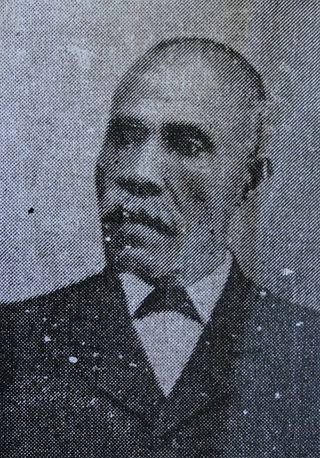
RatuJoni Madraiwiwi was a Fijian Ratu and early colonial administrator in what was then the British Crown Colony of Fiji.

Kubuna is one of the three confederacies that make up Fiji's House of Chiefs, to which all of Fiji's chiefs belong.

Turaga na Vunivalu na Tui Kaba, shortened as Vunivalu, is the Paramount Chief of the Kubuna Confederacy of the island of Bau in Fiji. Loosely translated the title means Warlord of Bau or "Root of War". The succession to the title does not follow primogeniture, but the candidate must be a high-ranking member of the Tui Kaba clan.
AdiLitia Samanunu Cakobau-Talakuli (1940–2012) was a Fijian chief, politician, and diplomat.

RatuEpenisa Seru Cakobau is a Fijian chief and politician. Cakobau is a senior member of the Tui Kaba clan. He is the 13th Vunivalu of Bau.

Bau is a small island in Fiji, off the east coast of the main island of Viti Levu. Bau rose to prominence in the mid-1800s and became Fiji's dominant power; until its cession to Britain, it has maintained its influence in politics and leadership right through to modern Fiji. Due to its sacred nature, foreigners have to apply for a permit to visit.

Tailevu is one of the 14 provinces of Fiji. Its capital town is Nausori which lies along the banks of the Rewa River.
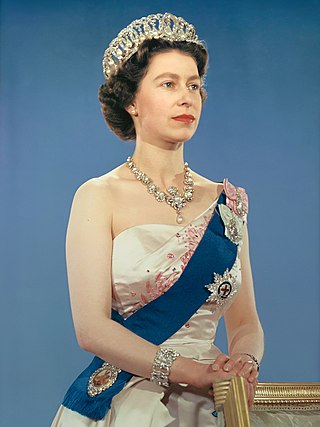
The monarchy of Fiji arose in the 19th century, when native ruler Seru Epenisa Cakobau consolidated control of the Fijian Islands in 1871 and declared himself king, or paramount chief, of Fiji. Three years later, he voluntarily ceded sovereignty of the islands to Britain, making Fiji a crown colony within the British Empire.
RatuAlifereti Finau was the eleventh Sau ni Vanua of Lau and the fifth Tui Nayau. He was a member of the noble household Matailakeba.

RatuTanoa Visawaqa was a Fijian Chieftain who held the title 5th Vunivalu of Bau. With Adi Savusavu, one of his nine wives, he was the father of Ratu Seru Epenisa Cakobau, who succeeded in unifying Fiji with the help from British missionaries and the crown into forming the contemporary Fiji today.
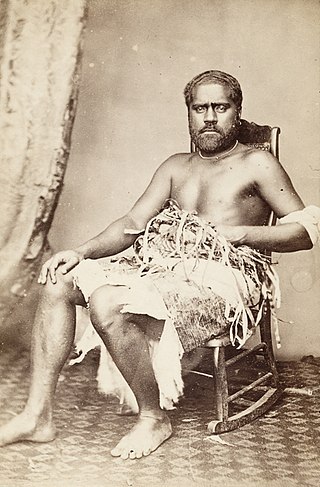
RatuEpeli Nailatikau I was a Fijian Paramount Chief, who was posthumously made the Vunivalu of Bau.

RatuPopi Epeli Cakobau was a Fijian chief and politician. He held the title of Vunivalu of Bau from 1914 until his death in 1936, and was also a nominated member of the Legislative Council.
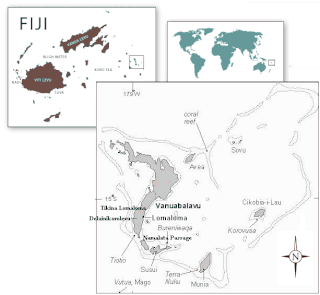
Turaga na Rasau is a traditional Fijian chiefly title of the Lau Islands. Prior to Fiji's colonial days, Fiji had many different Vanua with their own Paramount Chieftain which exercised no authority over the other; a saying from the island of Kadavu aptly summarises it "Nomu Turaga o sega na noqu Turaga" or "Your Chief is not my Chief" also the people of Beqa Island were of a similar opinion saying "Qali Cuva Ki Lagi" or "Subject only to heaven" and would bow to no outside Chieftain, but at the turn of the 20th century aspects of the traditional social structure remained, but for administrative purposes three main Matanitu were solidified and formed as they were the dominant consolidated powers at the time being that of Kubuna, Burebasaga and Tovata. With regard to the Rasau while its traditional origins were in Kubuna on Bau the titles traditional authority in modern Fiji is now in Tovata, Lau in particular Lomaloma Tikina on the Island of Vanua Balavu.
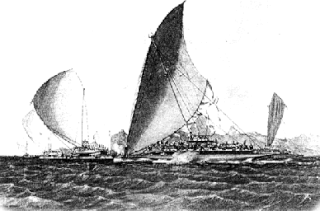
The Lasakau Sea Warriors were a 19th-century warrior sub-culture in the pre-colonial state of Bau, in Fiji. The sea warriors were instrumental in spreading Bau's political power throughout the South Pacific archipelagic islands. The rise of the eminent islet of Bau amongst other embryonic states was due mainly to the projection of sea power through its naval forces. Bauan chief Ratu Loaloadravu Tubuanakoro was praised by French Captain Dumont D'Urville in May 1827 for his geographic knowledge of the Fijian archipelago signifying Bau's naval influence. More far-ranging than Bau's land warriors led by the Vusaradave clan, the Lasakau clan became the leading proponents of war and tribute for the emerging island kingdom. They became known as the Bai kei Bau or 'War fence of Bau'. Sahlins made the crucial observation that," The kings of Bau based their rule not on native cultivators but on native sailors and fishers-which is to say in Fijian categories, as in political strategies, not on the land but on the sea". This was the great political transformation that catapulted Bau to power over other pre-colonial kingdoms.
Bau is the main village on Bau Island, Fiji. Once integral to the power and economy of the chiefly village, the villages of Lasakau and Soso are also located on the twenty-two acre island which became the centre of traditional power throughout the Fiji Islands in the nineteenth century.

RatuJosefa Celua was a Fijian chief from the island of Bau. He was the youngest son of Ratu Seru Epenisa Cakobau, King of Fiji, 6th Vunivalu of Bau, King of Bau, and his first wife, Adi Litia Samanunu, daughter of the Roko Tui Bau. In reporting official occasions he was referred to by Australian newspapers as Prince Joseph Celua of Fiji.
References
- ↑ "Going home to be a minister". Archived from the original on 2012-10-19. Retrieved 2012-10-19.
- ↑ "Genealogy". Archived from the original on 2018-08-08. Retrieved 2017-10-20.
- ↑ "Ratu George Kadavulevu Cakobau Dies After Illness".